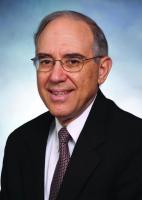The Case Against Physician-assisted Suicide
Physician-assisted suicide serves no purpose in medicine or in society.
Recently, I met a lady who told me about her father, a man who was a high ranking officer in the U.S. Air Force and later head of a regional airline company. He was used to being in charge and doing for himself. That all changed after he suffered a severe, debilitating stroke, which necessitated his daughter returning home to care for him. One day, he asked his daughter to help him end his life. She asked that he wait one year. If at the end of that time he felt the same, she would see to it that his wishes were carried out.
Had physician-assisted suicide been legal at that time, she could have easily arranged to have her father swallow legally prescribed medications to end his life. Five states now make physician-assisted suicide – also called physician-prescribed suicide, or physician aid-in-dying – legal. They include Oregon, Washington, Montana, Vermont, and most recently California.
Euthanasia is similar to physician-assisted suicide. Both result in the deaths of persons – one from physicians directly administering lethal medications into the individuals (euthanasia) and the other by persons swallowing a lethal dose of doctor-prescribed medications. Both are considered by the Catholic Church as grave moral offenses and thus prohibited. Even considering non-faith-based arguments, there is no virtue in these acts – however “compassionate” they may seem to some.
It is precisely because we share a common bond through our humanity that willfully ending one’s life through physician-assisted suicide should offend us. Human life is devalued if we consider death more valuable than life. The loss of bodily function does not diminish our humanity. Babies can’t walk initially, and adults may eventually require assistance; but it does not make them less human. Certainly an illness, even a terminal illness, does not reduce our humanity or lessen our purpose in life.
There is concern that abuse of the elderly and disabled may result from physician-assisted suicide. In certain countries in Europe where euthanasia is legal, both adults and children can be put to death, often without their consent, even for non-terminal illnesses. Their once-strict guidelines have been peeled back over the years. Already in California, some health insurance companies are refusing to cover certain cancer treatments – but are more than willing to cover the cost of the lethal medications used for physician assisted suicide.
One argument used by those favoring physician-assisted suicide is that no one should suffer from pain or die a painful death. The truth is, modern medicine is able to control pain very effectively. Interestingly, when people are asked why they are requesting medications of their doctors to help end their lives, pain is not at the top of the list. Loss of freedom and dignity, inability to enjoy activities or loss of bodily functions are more common. But underlying these situations is a real fear of abandonment.
We are made to be in relationship with others. So it makes sense for individuals to fear being alone. Are physicians not abandoning their patients and helping to misplace trust in medicine when they suggest that the best “treatment” is to end one’s life? How is this acting in a person’s best interest? Moreover, a most fundamental truth of medicine is ignored – the need to heal and not to harm.
There is a need by all to show compassion toward those suffering, physically, emotionally or spiritually. Compassion means “to suffer with.” Providing a method of death through physician-assisted suicide is not suffering with. It is not giving time for families to be close or reunite if estranged. It is not letting others show love by caring for and providing help to the infirmed. It is not allowing time for reconciliation. It is not what physicians have taken an oath to do. Compassion for others always has benefit.
The man in our story decided to live after the one year “trial” was up. He lived for eight more years. This time proved to be very meaningful for both father and daughter.
Dr. Rosario is president of the Southwestern Indiana Guild of the Catholic Medical Association.



